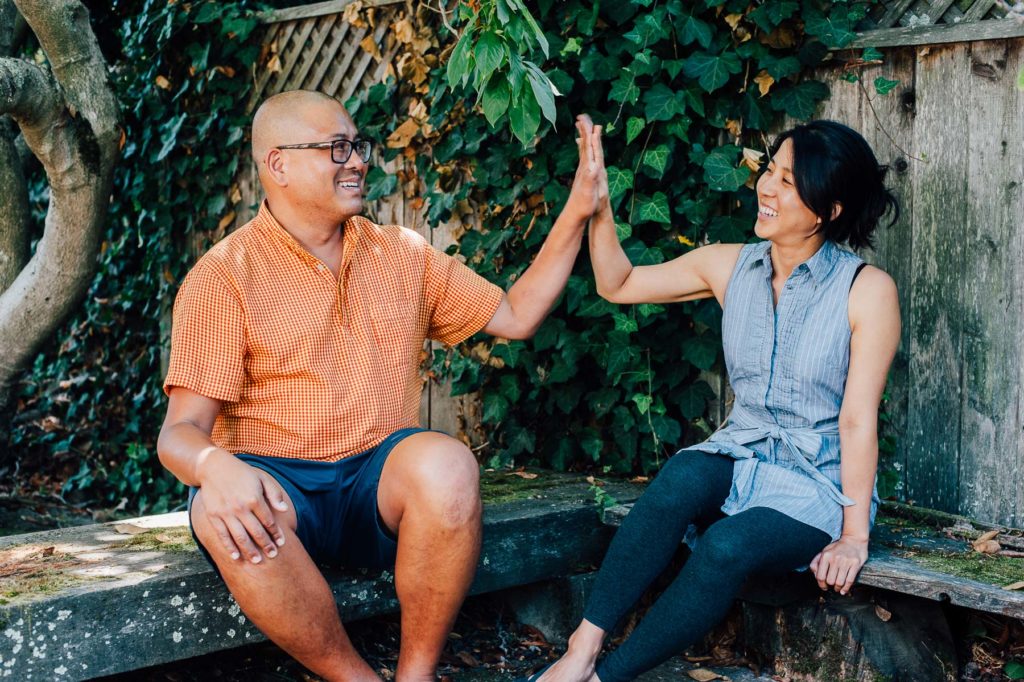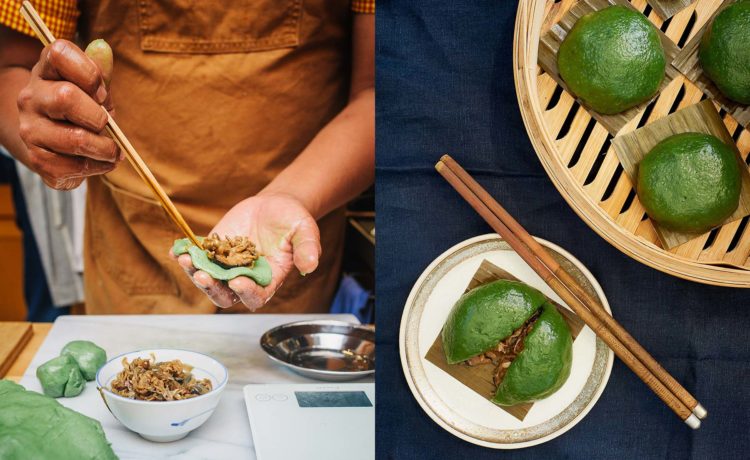
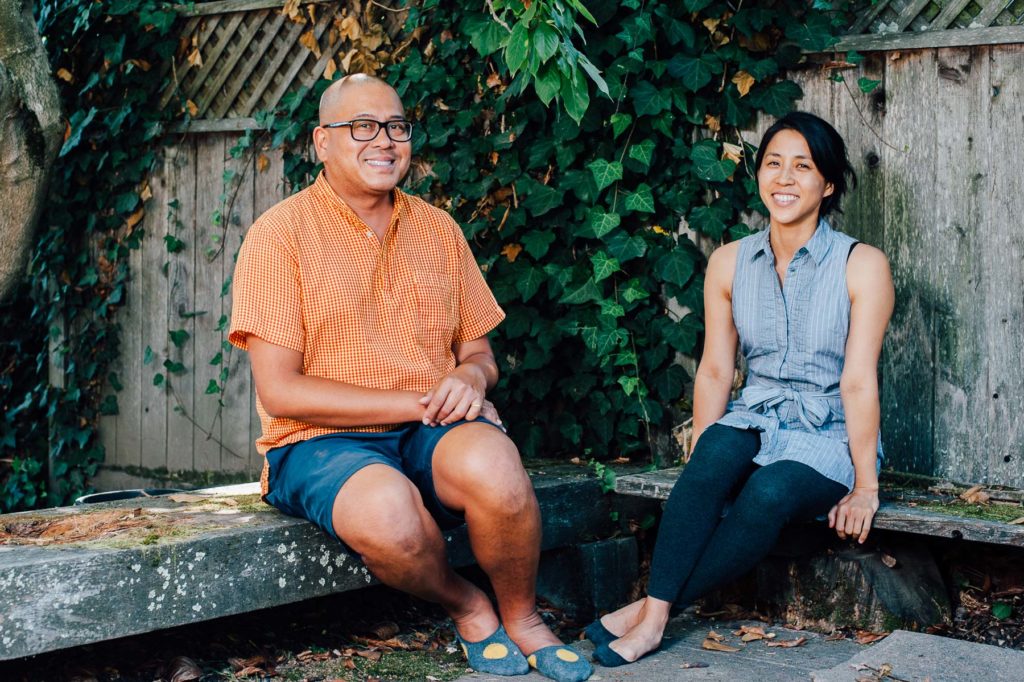
Henry Hsu was our co-host in October 2018 for the event, Taiwan Tales, a luncheon to benefit Real Food Real Stories. After eating and cooking his way through Taiwan in April 2019, he returns to Tapestry Suppers to share his knowledge with a cooking class on Taiwanese dumplings – get your tickets here to join us on Sunday, October 6.
A child of Taiwanese immigrants who settled in Houston, Texas in the ’70s, Henry currently works at Hodo Foods in Oakland though he has worn many hats. While living in Ecuador he found himself in a new place with a scarcity of good Asian food and eventually ran a dumpling business, before returning to the US to pursue his passion of food and cooking professionally. Read on to learn more about Henry’s fascinating story.
Please share your experience growing up as Taiwanese-American in Texas.
When my family moved to the US, they moved often, living in New Jersey, Chicago, San Antonio and Houston within a 3.5 year period. My parents landed in Texas mainly because my parents were seeking out a simiIar climate to Taiwan’s subtropical one! I grew up in Houston, Texas in the ’70s & ’80s. Although a very diverse place, Houston also had pockets of homogenous cultural zones. My childhood home, neighborhood and my schooling were for the most part set within a community of white privilege, but this belied the fact that we were immigrants who socially (in our neighborhood) lived in isolation.
Our family’s larger social network was a Taiwanese one and revolved mostly around the Presbyterian Church. Incidentally, this is the most common Christian denomination in Taiwan due to the Scottish Missionaries who came to the island at the end of the 1800s. In the 1960s, the US had just started allowing Asians to migrate to the US again, after decades of exclusionary immigration policies. I only learnt of this later in life, but Taiwanese immigrants constituted the bulk of ethnic Chinese migration to the US in the ’60s and ’70s, so I guess we were a part of this wave to the US – and a brain drain for Taiwan. These factors made for an interesting backdrop to my childhood and teen years in Houston.
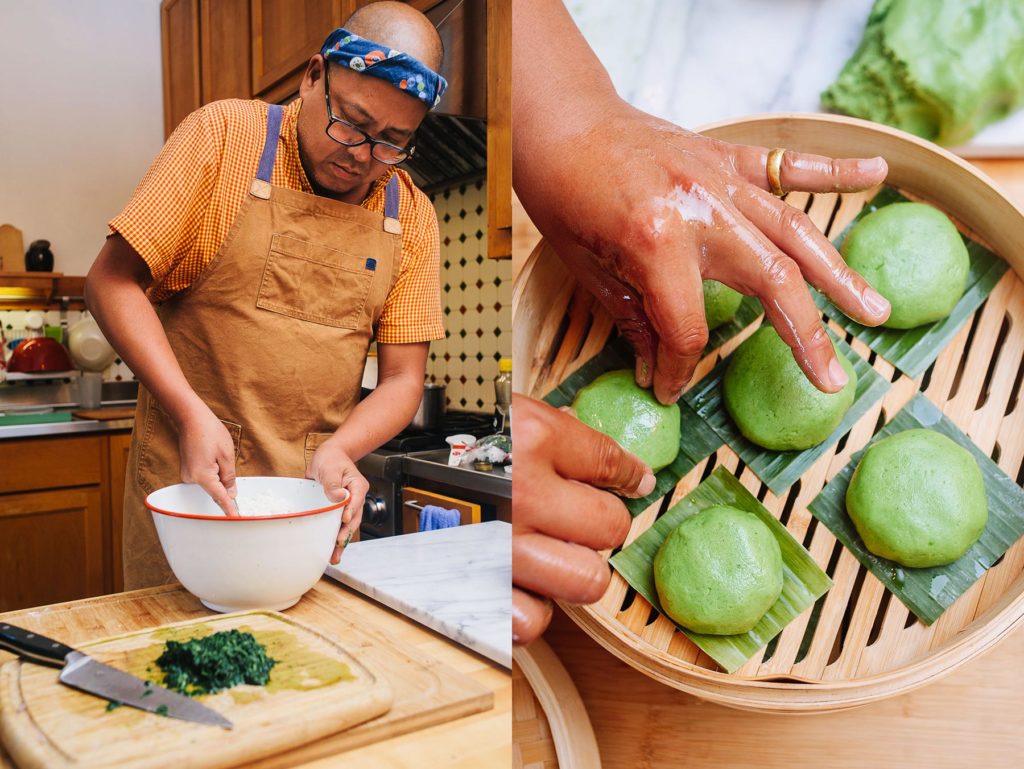
The Taiwanese who came to the US sought economic opportunity and were highly educated. There was a pressure cooker mentality to succeed (fostering the concept of the Model Minority) so while there were intense external pressures to assimilate, within the family, there was also a pressure to maintain our “Taiwaneseness”. My parents were not cultural immigrants who embraced western culture, so for me it was all about navigating these social and familial expectations while cultivating a feeling of comfort in my own skin.
Being gay and in the CLOSET, I rejected these paradigms and instead, found comfort in being another type of outsider in the Latin American community. Growing up in Texas, where Latin culture is significant, I started doing volunteer work in Houston’s Latin community while in junior high. I also spent my high school summers in Latin America. I lived in my own world and was often pigeon-holed for many things, based on race and class, but mostly found opportunities to express myself in a very insular way. I’d often get comments like, “I don’t think of you as Asian; I just think of you as Henry”, or “Why don’t you have more Asian friends?”. I’d get these remarks from all walks of life; the former from Asians or Whites and same of the latter question. I evaded all answering, though, as I had a fear of getting too close to anyone.
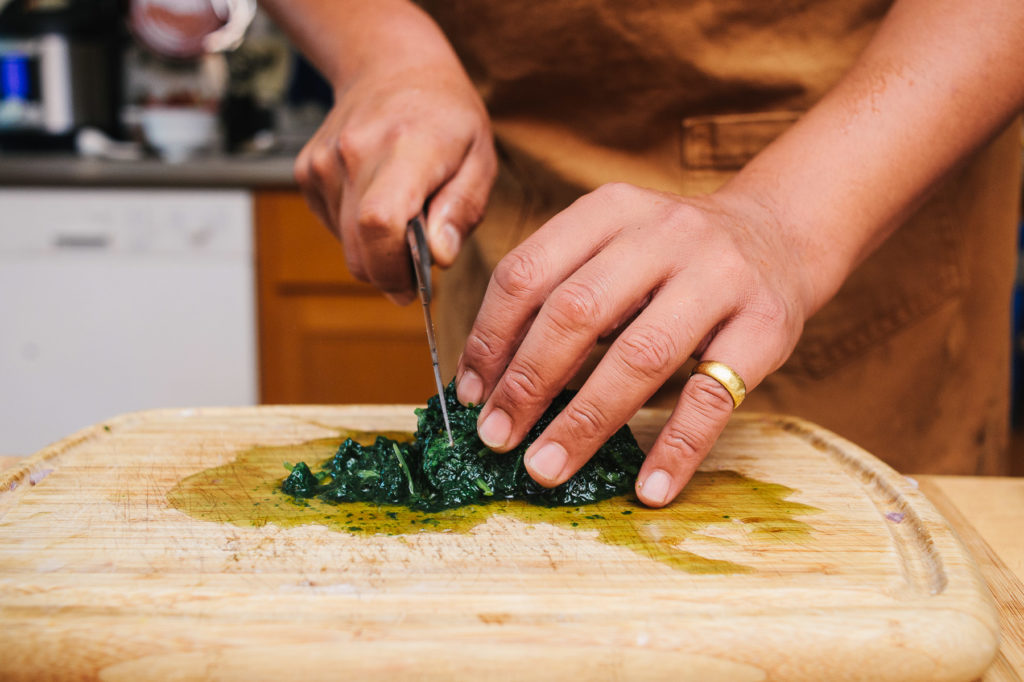
What is the role that food and shared meals played in your upbringing?
When we first moved to Texas, we did not have access to a lot of the foods we had in Taiwan, so we had to grow and make a lot of things. My paternal grandparents lived with us in Houston, and my grandfather built out our backyard with raised garden beds, growing everything he could from the motherland: loofah, string beans, water spinach. From the outside, in our very white and conservative community, we were assimilating well, and internally, maintaining cultural semblance with our Taiwanese heritage. No one knew that we stored our own urine for fertilizer (now, a very hip ecological practice in the western world), or that my grandfather took our dyed Easter Egg Chicks from the mall, raised them, then we ate them! Western school friends would look in our pantry for snacks to find odd-smelling dried goods. Recognizing that our way of doing things was “othering” us among my white friends, my embarrassed response was, “All of these things have to be cooked into “food”!”.
So while my grandfather grew a lot of our produce, my mother and grandmother spent a lot of time in the kitchen making everything else: Soymilk, Noodles, Tofu, Zong Zi, Radish Cake, etc. We ate family-style, 95% Taiwanese food. Western food cooked at home consisted of a very few specific things burned into my brain: Spaghetti with meatballs, Hamburgers, Beef stroganoff and Blueberry no-bake Cheesecake. When my American friends would ask, “Do you really eat Chinese food everyday? How do you pick up rice (grain by grain?) with chopsticks?”, I’d invariably retort, “Do you eat hamburgers everyday?!”.
We had meals together as a family, but when I was in junior high and perhaps due to assimilation anxiety, I started to want to cook my own western food. By eschewing my family’s food, I would be scolded….hands out and hit on the knuckles with chopsticks! Other than this personal agency to create my own culinary world, my sister and I were not expected to learn how to cook. And with a nod to my family’s fear of us assimilating too much, I would often hear this phrase each time I enjoyed my mother’s cooking: “You like that fried rice, right? Well, if you want to have that in your life, you must find a Taiwanese wife!”.
I heard this at age 5, and, being in the closet….it was mildly traumatizing as you can imagine!!! Maybe this helps explain an important part of me wanting to cook things for myself, to prove an emotional point in some way?
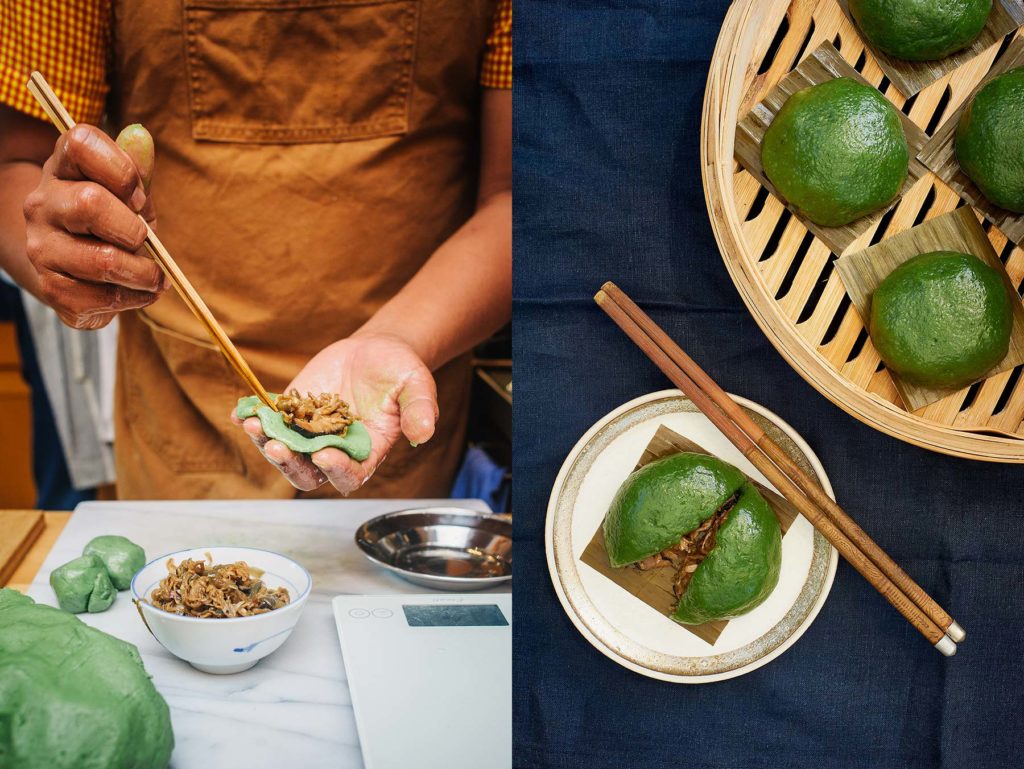
What inspired you to start a dumpling business while living in Ecuador? What was the reception to this idea and what did that experience teach you?
I’ve had long trajectory of coming to food professionally. I’d learned to cook in earnest while in college in Iowa, reflective of a common storyline where one goes away to school, misses home cooking and then proceeds to get mom’s recipes over the phone! I went to school in a small town (population ~5,000) in the middle of Iowa, so this was my own “immigration” story similar to my parents, in a way. I sought out comfort foods and recipes from mom. My first being Oil Rice, which will be on the menu.
Iowa was where I learned to understand and accept my Asian side! I had friends from all Asian cultures, international students and immigrants, and we did a lot of self-discovery revolving around food, cooking and driving an hour or two to the nearest town with an Asian grocer.
After graduating from college, I pursued many paths in life: public health, architecture, fashion, furniture design and international development. All throughout this time, however, I was always cooking and entertaining. When I moved to Ecuador from NYC in 2007, I found myself in a new place that had very little good Asian food! I was working for a design NGO, teaching architecture, and then eventually started selling my dumplings to friends who wanted them (gosh, I never thought of that parallel with my family immigrating to the US, till now). Unlike the adjacent countries of Peru and Colombia, Ecuador doesn’t have a significant ethnic Chinese population.
Three and a half years into my time in Ecuador, I ended up dropping everything and just made dumplings! I also began to cater parties and incorporated other types of food into the mix, based on my upbringing. My focus was dumplings, but I also used local ingredients (potatoes, lupine seeds) and also began to mix in flavors from Texas (southern and tex-mex). I then decided to come back to the US to find work in the food industry to see where I could go with it, now truly as a culmination of all my interests.
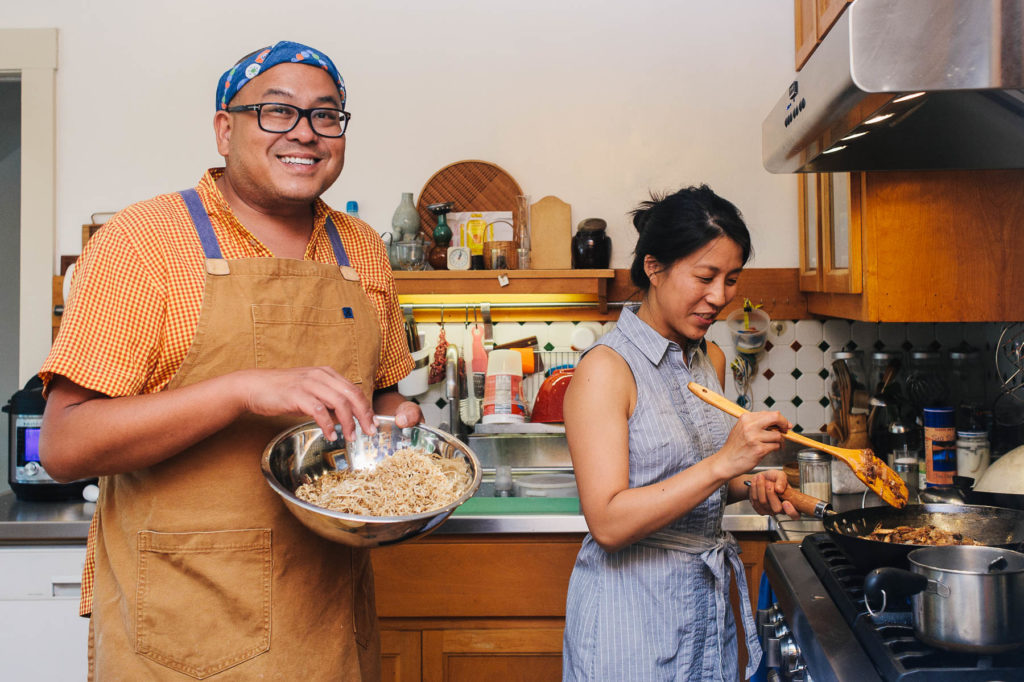
What do you appreciate about living in the Bay Area?
I love the food culture here! Access to amazing ingredients and a larger community that cares about how their food is grown and made. Of course this is also a crazy thing and sometimes over the top.
What inspired the menu for this event? Will you be cooking any family recipes?
Pei-Ru and I have very different stories, but we have the same roots in many ways. We’ll be doing some family recipes, but updated for our Californian way of eating, ie, a focus on sourcing quality ingredients from trusted purveyors. When I cook Taiwanese dishes for my family or Taiwnese elders, my fear is that my modifications will be misunderstood. Taste, rather than storytelling of the ingredients and the cultural mash-ups for them is of utmost priority, so I have to at least make sure it TASTES good, even if it’s not “authentic” in their minds.
What is the story – personal, social or culinary – that you want to tell through this menu?
That food is not only about cultural, personal and physical nourishment but also the best way to share the stories that come from oneself. When a diner knows where the maker is coming from and what her intent is, and it is embodied in this tangible, shareable way, that exchange can be a positive and powerful connection for everyone at the table.
